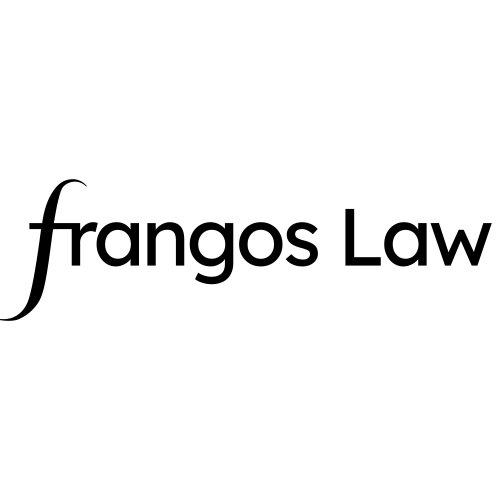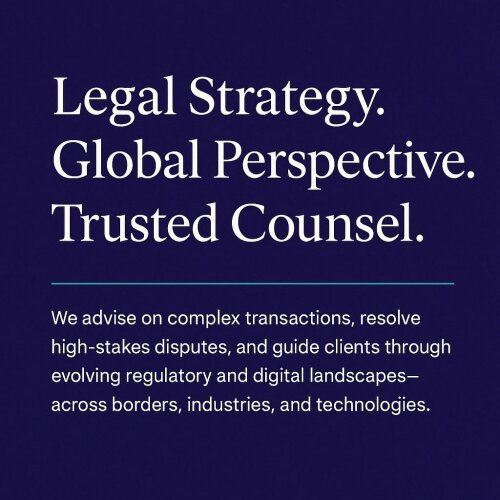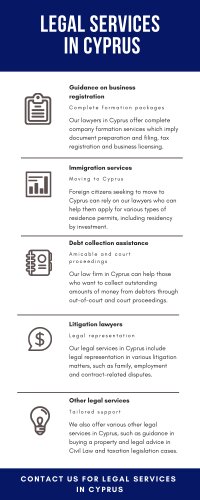Best Private Equity Lawyers in Larnaca
Share your needs with us, get contacted by law firms.
Free. Takes 2 min.
List of the best lawyers in Larnaca, Cyprus
About Private Equity Law in Larnaca, Cyprus
Private equity refers to investment funds, usually organized as limited partnerships, that buy and restructure companies that are not publicly traded. In Larnaca, Cyprus, private equity plays a critical role in the local economy by fostering business growth, supporting entrepreneurship, and facilitating mergers and acquisitions. The city’s dynamic business environment, combined with Cyprus’s favorable tax system and robust legal framework, has made Larnaca an appealing destination for private equity firms and investors both locally and internationally.
Why You May Need a Lawyer
Dealing with private equity transactions can be complex and challenging, especially for individuals or businesses new to the sector. Common situations where legal assistance is essential include:
- Structuring and setting up private equity funds
- Negotiating investment agreements and terms
- Conducting due diligence on target businesses
- Securing regulatory approvals and compliance
- Navigating mergers, acquisitions, and exits
- Resolving disputes between fund partners or with third parties
- Managing cross-border transactions
- Understanding and applying local tax implications
A specialized lawyer ensures processes comply with all laws and can protect clients from unintended legal and financial risks.
Local Laws Overview
Cyprus, including Larnaca, offers a well-structured legal and regulatory framework for private equity. Key aspects include:
- The Companies Law, Cap. 113, governs corporate formation, management, and dissolution
- The Alternative Investment Funds Law (AIF Law) regulates the formation and operation of private equity funds, including licensing and supervision
- The Cyprus Securities and Exchange Commission (CySEC) oversees fund management and compliance
- Robust anti-money laundering (AML) and know your customer (KYC) rules apply for all financial transactions
- Cyprus offers an attractive corporate tax rate and several double tax treaties, making it a popular jurisdiction for fund establishment
- Data protection and confidentiality are governed by both local law and the EU’s General Data Protection Regulation (GDPR)
These laws provide strong investor protection, operational flexibility, and an attractive environment for private equity activities.
Frequently Asked Questions
What is private equity?
Private equity involves investing in privately held companies, often with the goal of increasing their value and eventually selling them for a profit. Funds are usually pooled from institutional and individual investors.
How do I set up a private equity fund in Larnaca, Cyprus?
To set up a private equity fund, you must comply with the Alternative Investment Funds Law and register with CySEC. Legal advice is essential to navigate formation, structure, and regulatory approval processes.
Is Cyprus suitable for cross-border private equity investments?
Yes, Cyprus’s strategic location, EU membership, and extensive tax treaty network make it a preferred jurisdiction for cross-border investments.
What are the main regulatory bodies for private equity in Cyprus?
The Cyprus Securities and Exchange Commission (CySEC) is the primary regulatory authority for private equity funds and managers in Cyprus.
What does due diligence in a private equity transaction involve?
Due diligence includes reviewing a target company’s financial statements, legal standing, intellectual property, contracts, and compliance history to identify any risks before investment.
What are the tax implications of private equity transactions in Cyprus?
Cyprus offers favorable tax rates, exemption for capital gains in some cases, and access to a broad network of double tax treaties. Taxes vary based on fund structure and investment type, so expert advice is recommended.
Can foreign investors establish private equity funds in Larnaca?
Yes, foreign investors are welcome and often benefit from straightforward company formation procedures and investor-friendly laws.
What is the process for exiting a private equity investment?
Common exit strategies include selling the company to another firm, listing it on a stock exchange, or selling shares back to original owners. The process depends on the fund’s structure and investment agreement.
How are investors’ interests protected under Cyprus law?
Cyprus law mandates transparency, regular reporting, and fiduciary duties for fund managers. Investors’ rights are safeguarded through a combination of legislation and regulation by CySEC.
What risks should I be aware of in private equity deals?
Key risks include regulatory compliance failures, market volatility, inadequate due diligence, legal disputes, and tax liabilities. Using an experienced lawyer reduces these risks significantly.
Additional Resources
For further information or support, consider contacting or referring to:
- Cyprus Securities and Exchange Commission (CySEC)
- Cyprus Investment Funds Association (CIFA)
- Ministry of Finance of the Republic of Cyprus
- Larnaca Chamber of Commerce and Industry
- Licensed law firms and legal consultants in Larnaca specializing in private equity
Next Steps
If you are considering a private equity transaction or fund in Larnaca, Cyprus, the best first step is to consult with a qualified lawyer who specializes in private equity law. The lawyer will be able to:
- Assess your business needs and objectives
- Guide you through the legal and regulatory landscape
- Draft and review required legal documents
- Ensure compliance with all applicable laws
- Assist in negotiations and protect your interests during all stages of the investment
Preparing all relevant documents and details in advance will help streamline your consultation. Taking professional legal advice early can protect you from costly mistakes and set your investment up for long-term success.
Lawzana helps you find the best lawyers and law firms in Larnaca through a curated and pre-screened list of qualified legal professionals. Our platform offers rankings and detailed profiles of attorneys and law firms, allowing you to compare based on practice areas, including Private Equity, experience, and client feedback.
Each profile includes a description of the firm's areas of practice, client reviews, team members and partners, year of establishment, spoken languages, office locations, contact information, social media presence, and any published articles or resources. Most firms on our platform speak English and are experienced in both local and international legal matters.
Get a quote from top-rated law firms in Larnaca, Cyprus — quickly, securely, and without unnecessary hassle.
Disclaimer:
The information provided on this page is for general informational purposes only and does not constitute legal advice. While we strive to ensure the accuracy and relevance of the content, legal information may change over time, and interpretations of the law can vary. You should always consult with a qualified legal professional for advice specific to your situation.
We disclaim all liability for actions taken or not taken based on the content of this page. If you believe any information is incorrect or outdated, please contact us, and we will review and update it where appropriate.
















